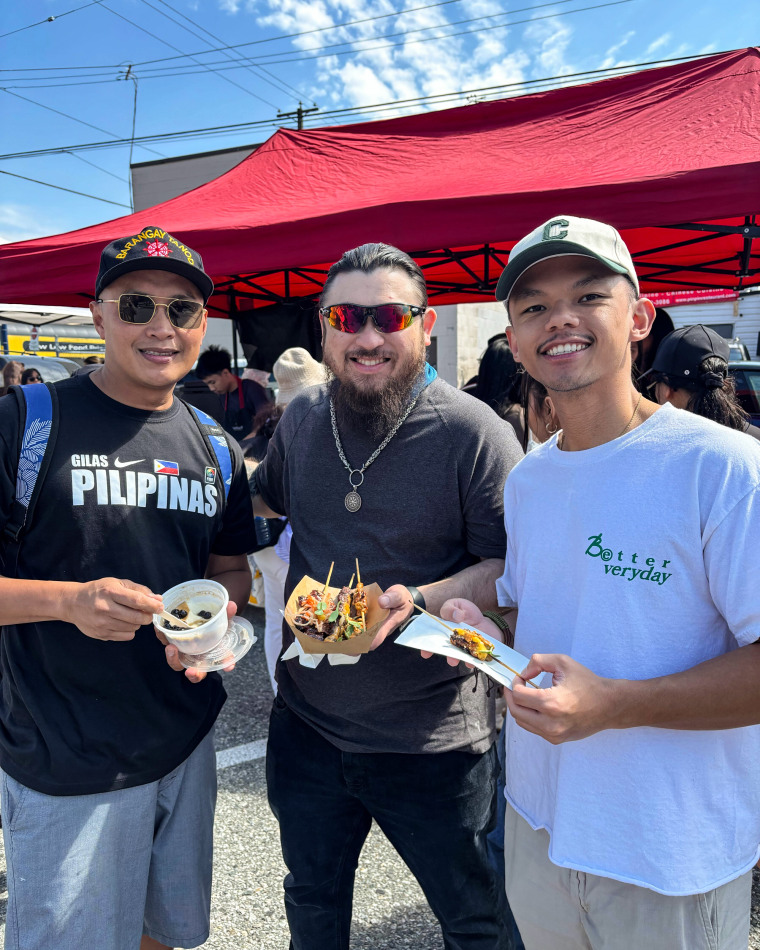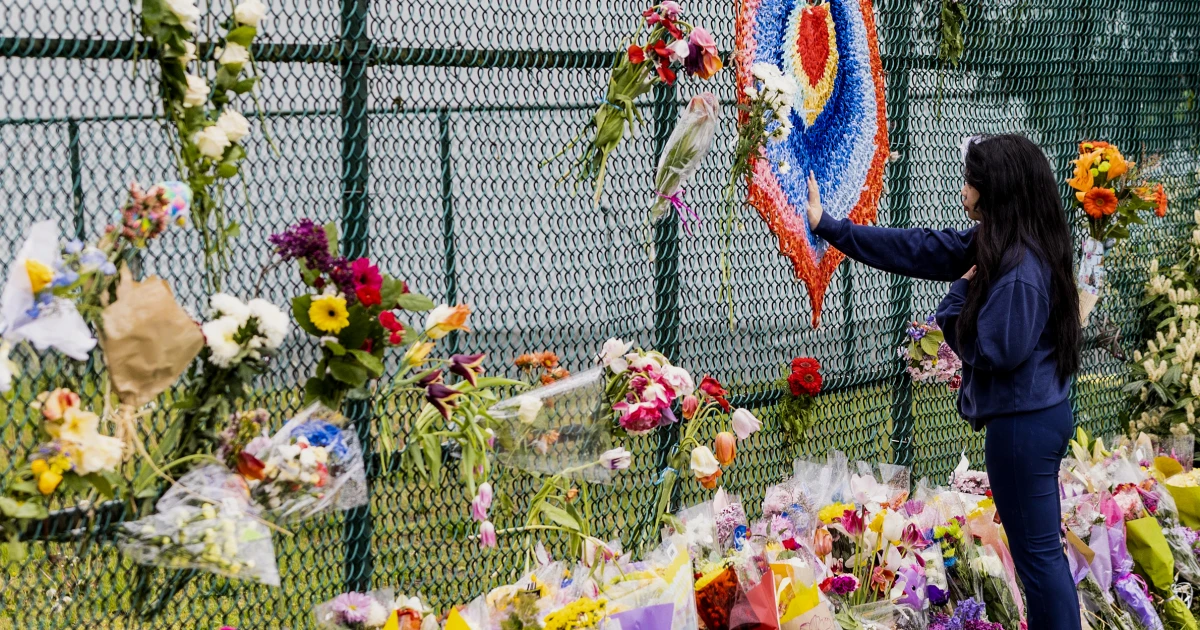Thirty minutes after Diana Silva, a vendor at the Filipino festival in Vancouver, left the party Saturday night, she heard that a car had plowed into the crowd at the event. Silva said she immediately began thinking of how to help.
It’s one example of how Filipino Canadians in the area’s tight-knit community have been participating in vigils, planning fundraisers for victims and providing meals to locals immediately after the attack.
TJ Conwi, a Filipino Canadian chef who has lived in the area for about 30 years, said the immediate acts of communal care reflect the concept of “kapwa,” a Tagalog word that means the interconnectedness and togetherness in the Filipino community.
“When you say ‘we’re kapwa,’ you’re talking about a whole community. You’re talking about how we all fall together and all rise together, whatever it is that we go through. And it’s just so powerful to see that at the vigil yesterday,” said Conwi, 48, who attended the festival with family members the morning of the tragedy. “It’s automatic, it’s given, it’s not even earned.”
The attack killed 11 people and injured more than two dozen others. The victims were 5 to 65 years old, officials said at a news conference Sunday, adding that the death toll could rise. So far, law enforcement has sidestepped discussing a motive, but it has ruled out terrorism as a possibility.
Officials said the suspect, Kai-Ji Adam Lo, 30, who has been charged with eight counts of second-degree murder, had a history of mental illness and was known to police.
Filipino Canadians in the area say they are shaken. The ethnic group is the third-largest Asian immigrant population in the country, behind Indians and Chinese, at roughly 957,355 people as of the 2021 census. While the largest community is in the greater Toronto area, Vancouver is also home to a significant population, with roughly 141,230 people of Filipino descent, making up 5.4% of the metro area.
Filipinos began sustained immigration to Canada in the 1960s as a deteriorating economy in the Philippines coincided with a Canadian labor shortage. Many went to the country for jobs in nursing and patient services, as well as to fill other gaps in the country’s labor market. By 2016, Filipinos held just under a third of those roles. And for decades, the community has flourished to include small-business owners, leaders and other prominent figures.
Locals said the festival that was attacked is one of the largest Filipino celebrations of the year, honoring the 16th century Filipino chieftain Datu Lapu-Lapu, who defeated Spanish forces and remains a symbol of resistance against colonialism. The event was a rare chance for Filipinos across the lower mainland to gather in one place, many said.
Conwi, who leads a group of Filipino chefs who provide meals to charities in the area, said that though Filipino Canadian locals are still in shock, the crash hasn’t stopped them from pitching in to uplift one another. Conwi said the weekend was filled with Zoom calls and coordination from community organizations to ensure that counseling, food and other resources were taken care of. He and other chefs in his collective have been cooking and distributing meals to families and grieving residents, as well.

TJ Conwi, left, at the festival with some chef friends hours before the attack.TJ Conwi
“In less than five, 10 hours, people woke up with purpose like you wouldn’t believe. People didn’t even have time to process this, but people are already coming together,” Conwi said. “It just all came about organically. It’s so quick.”
Silva, owner of the Filipino bakery Cake It Easy Desserts, said she has been selling cupcakes, with 100% of the proceeds going to fundraisers for the victims. She said it has been difficult to come to terms with the tragedy.
“It’s such a different feeling knowing that you were there just before it happened,” Silva, 41, said of the chilling experience. “I have a 7-year-old and a 5-year-old, and they were running around two blocks away from where it actually happened.”
Silva said that during a vigil for the victims, community members didn’t hesitate to start brainstorming ideas to help. It’s almost reflective of the occasion they were supposed to celebrate, she said.
“Lapu-Lapu is all about resilience, and he stood up for the Philippines,” Silva said. “I think that’s what our community is doing now.”
Celine Bacani, a Filipino Canadian who owns Lee’s Donuts in the city, said it has also been heartening to see those outside the community support Filipinos on what was supposed to be a joyous weekend. Leaders from across Canada spoke out, Bacani said, which “spoke volumes.”
Filipinos abroad also offered their solidarity with the local Vancouver community.
Bacani, 42, who was born and raised in Vancouver, said the community has a long road of healing ahead.
“Filipinos, by nature, are really caring and nurturing people. We are here to always help others,” she said.
